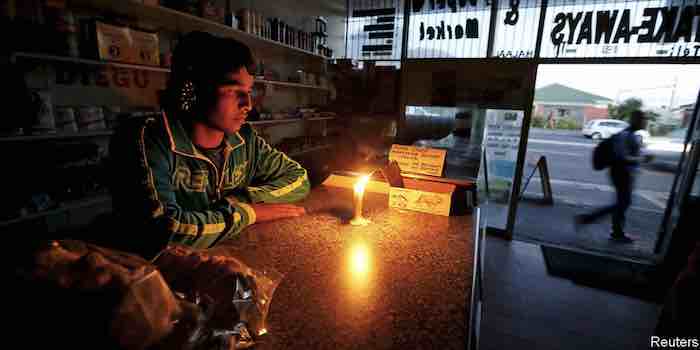By Jack Dini ——Bio and Archives--February 5, 2023
Global Warming-Energy-Environment | CFP Comments | Reader Friendly | Subscribe | Email Us

Africa is a massive place, much bigger than most folks realize from just looking at a map. The African continent has a land area of 30.37 million square kilometers (11.7 million square miles), enough to fit in the US, China, India, Japan, Mexico and many European nations combined.
The population is greater than 1.2 billion and there are 54 sovereign African countries. The continent is undergoing an energy crisis.
Many sectors are discouraging the use of fossil fuels in Africa in favor of wind and solar.. This has played a direct role in high morbidity and mortality rates on the continent. Homes without electricity for lights and refrigerators, businesses without sufficient power to improve productivity, and millions languishing in abject poverty, all due to lack of energy that otherwise would be available from the much demonized fuels of coal, oil, and natural gas. 1
Approximately half of Africans cannot get electricity when they need it. Only 14.3 percent of people in Central Africa have access to electricity. The combined production of power of 48 countries in sub-Saharan Africa equates to the production of a single western economy like Spain.
The most devastating effect of this energy poverty is felt in health care centers, 60 percent of which in sub-Saharan Africa do not have electricity. According to the United States Agency for International Development, 100,000 public health facilities in the region have no access to reliable electricity. 1
This situation is not unique to the sub-Sahara. Even the advanced economy of South Africa has faced regular power blackouts and load shedding due to mismanagement by the state utility whose policies are now influenced by climate movement's hostile to fossil fuels.
However, coal rich but energy starved South Africa will not immediately abandon its fossil fueled electricity generating plants as it transitions to cleaner forms of power said President Cyril Ramaphosa even though since 2021 the country has secured several billion dollars in international loans and guarantees to support a green transition. Ramaphosa cautioned against "the perception that we are called upon to make a trade off between energy security and a just transition to a low carbon economy. Our energy architecture is 80 percent coal powered, there is just no way we are going to close those power stations just like that." Two recently built plants, ranked among some of the biggest coal powered stations in the world, are beset by design problems. but they will remain operational until the end of their 40 year life span, he vowed. 2
The problem is that new investments are being directed to expensive and unreliable wind and solar projects when coal is the obvious solution to Africa's energy poverty. The African Development Bank has stopped new funding for coal projects. So have dozens of other aid agencies based in Europe and North America. (2)
In April 2021, seven European countries pledged to stop important support for fossil fuel projects abroad. They joined the United States in stopping funding for energy infrastructure projects. This blanket ban will entrench poverty in regions such as sub-Saharan Africa but do little to reduce the world's carbon emissions. (3)
Africans need electricity now. Not someday in the future.
References
View Comments
Jack Dini is author of Challenging Environmental Mythology. He has also written for American Council on Science and Health, Environment & Climate News, and Hawaii Reporter.